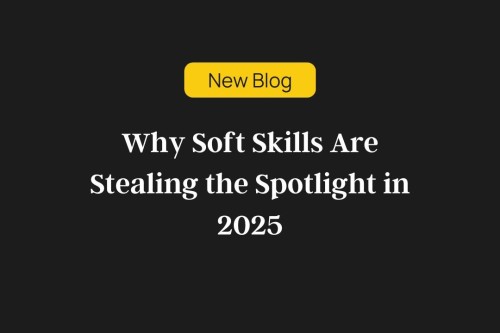
posted 4th July 2025
These days, employers are placing more emphasis on who a candidate is, not just what they’ve done. Across a variety of industries, the hiring process is evolving to prioritise candidate attributes such as adaptability, communication, and emotional intelligence. These qualities, often called ‘soft skills’, are proving to be just as important as bringing experience or qualifications to a role.
This shift reflects a broader change in recruitment strategy, with companies re-evaluating job descriptions, interview techniques, and internal role requirements to align with the needs of a modern workforce.
In this article, we explore why soft skills are becoming more valuable than ever across industries, how recruiters can identify them effectively, and how employers can redefine job descriptions and interviews to reflect this shift. As we head into the summer, there’s never been a better moment to look beyond a candidate’s CV for 2025 Q3 and beyond.
Why Soft Skills Are Stealing the Spotlight in 2025
For years, employers have focused on a candidate’s qualifications, certificates, and specific experience when it comes to job applications. But as workplaces become more collaborative, diverse, and dynamic, companies are now rethinking this process and are shifting their focus to what matters most.
Soft skills - such as adaptability, teamwork, communication and empathy - are now taking centre stage within hiring conversations.
Why this trend is rising
- Increased remote/hybrid work: With many teams now operating from different locations, especially since COVID-19, employees need to communicate clearly, manage their own workload, and collaborate with their teams remotely.
- Tech can’t replace human traits: While automation and AI tools are useful for streamlining tasks, we must remember that they can't replicate critical human thinking, empathy, or interpersonal connection - all of which are essential in customer service, leadership, and creative roles.
- More value placed on company culture: Businesses are now focusing on creating more of an inclusive, purpose-driven workplace environment - making personality and cultural alignment key factors when hiring.
- Customer expectations are changing: In client-facing roles, soft skills such as listening, understanding, and responding appropriately to situations has become more important to employers when hiring - rather than ticking off a list of technical skills.
Most sought-after soft skills in 2025
- Adaptability: Candidates who can embrace change, learn quickly, and remain calm under pressure in a fast-moving workplace.
- Communication: From emails to presentations, candidates displaying confidence and having the ability to communicate clearly builds trust - especially in dispersed teams.
- Emotional Intelligence (EQ): It’s important that candidates can manage their emotions, read social cues, and respond thoughtfully within the workplace - which will lead to better teamwork and conflict resolution.
- Critical Thinking: It’s important that candidates can show valuable skills in weighing up information and making sound decisions for best outcomes.
- Creativity: Problem-solving with fresh ideas, having an open mindset and being able to approach challenges in a creative manner helps companies innovate and stay competitive.
- Time Management: Candidates who show strong time management skills - such as managing priorities, meeting deadlines and staying self-motivated - are key to independent working.
- Teamwork: Contributing to a group effort, supporting others, and sharing credit demonstrates strong teamwork skills - creating a stronger and more cohesive workplace.
How Recruiters Can Identify Soft Skills Beyond the CV
A person’s CV often focuses on their qualifications, job titles, and hard skills. But the most successful hires in 2025 are those who bring strong personal qualities and soft skills to the table. That’s why it’s key that recruiters go beyond traditional application methods when seeking potential hires and assess these critical soft skills.
How to assess soft skills effectively:
- Behavioural Interviewing
When interviewing a candidate, get to know them by asking about their real-life experiences. These are where their soft skills will be tested and showcased.
An example could be: “Tell me about an occasion where you had to work under pressure but still deliver strong results?”
Observe their behaviour and search for structured answers that tell you how they handled the situation, what actions they took, and what the outcomes were.
- The STAR Method
Encourage the use of the STAR format to help candidates articulate their experience clearly:
- Situation: What was the context?
- Task: What was their goal?
- Action: What did they do?
- Result: What was the outcome?
2. Posing Real-Life Scenarios
Another way to assess a candidate’s soft skills is to present them with hypothetical challenges within an interview and relevant to the role they have applied for. From here, you will be able to detect how the candidate responds under pressure or uncertainty.
3. Looking Beyond Words
Soft skills often reveal themselves beyond words, so pay close attention to how a candidate behaves throughout the recruitment process. Ask yourself:
- Do they show enthusiasm and curiosity within their answers?
- Are they respectful and engaged with everyone they meet during the interview?
- Does their body language and tone match their answers?
Other soft skill assessment ideas could be:
- Using an online soft skills assessment, or personality profiling tools, to help you evaluate their traits - such as emotional resilience or sociability.
- Reviewing the references they provide for feedback on their interpersonal abilities, not just their performance skills.
- Incorporating a collaborative task as part of the interview process, such as a group problem-solving exercise, to assess their soft skills.
Update Job Descriptions to Reflect the Shift
One way to attract candidates with strong soft skills is to adjust the focus of your job adverts. It’s important to remember that it’s not just about listing the responsibilities required for the role, it’s about selling your workplace culture, values and the soft skills that matter most in your team.
Tips for updating job specifications:
- Clearly state the soft skills required for success within the role as well as the technical qualifications needed.
- Describe what working in the role will feel like by emphasising the importance of teamwork, communication, and flexibility where appropriate.
- Be specific in what your company is looking for regarding valuable behaviours - avoiding using generic buzzwords like “self-starter” or “people person”.
- Explain how the candidate will interact with colleagues, clients, or managers - what soft skills will help them thrive in your workplace.
By following these simple steps and making changes to your job advert – to attract a wider, more suitable talent pool – you will help your team to grow in the right direction.
NuStaff Is Here to Help:
The strongest candidates aren’t just defined by their CV, they’re defined by their ability to adapt, communicate, empathise, and lead within advertised roles. As the world of work evolves, soft skills have become more essential to building resilient, high-performing teams within a company.
At NuStaff, we help employers seek the right candidates beyond the qualifications displayed on a CV - especially those who bring emotional intelligence, collaboration, and long-term value to your business.
Whether you’re refreshing job specifications, or rethinking your interview process, our expert team is here to help you hire the right candidate for your company with confidence.
Contact NuStaff for Expert Advice
Get in touch with our friendly team today and see how we can help you hire with confidence.
📞 Call us: 03442 645 456
📧 Email: info@nustaff.com
🌐 Visit: www.nustaff.com


